
January 2020
Register Now for “Catalyze 2020: Innovate and Inspire”

Registration is open for the 2020 AAVMC Annual Conference and Iverson Bell Symposium, which will be held March 6-8 at the Hyatt Regency Washington on Capitol Hill in Washington, D.C.
Themed “Catalyze 2020: Innovate and Inspire,” the conference is considered one of the leading professional development events in international academic veterinary medicine.
The AAVMC’s annual complement of recognition awards honoring professional excellence and service will be presented during the event.
The AAVMC Board of Directors will meet on March 4, 2020. The event will also feature the annual Advocacy Summit, where leaders share information and build support for academic veterinary medicine on Capitol Hill, on Thursday, March 5. The AAVMC’s annual Veterinary Medical Career Fair will be presented on Sunday, March 8.
Major AAVMC operating committees including Academic Affairs, Research, Admissions and Recruitment, CIVME and other groups will convene during the days preceding the actual conference. Committee members are invited to consult with AAVMC staff leads for specific information regarding those dates and times. The final component of the AAVMC Leadership Academy will also be held.
Located just steps from the U.S. Capitol building, the Hyatt Regency Washington on Capitol Hill offers easy access to some of the popular Washington D.C. locations.
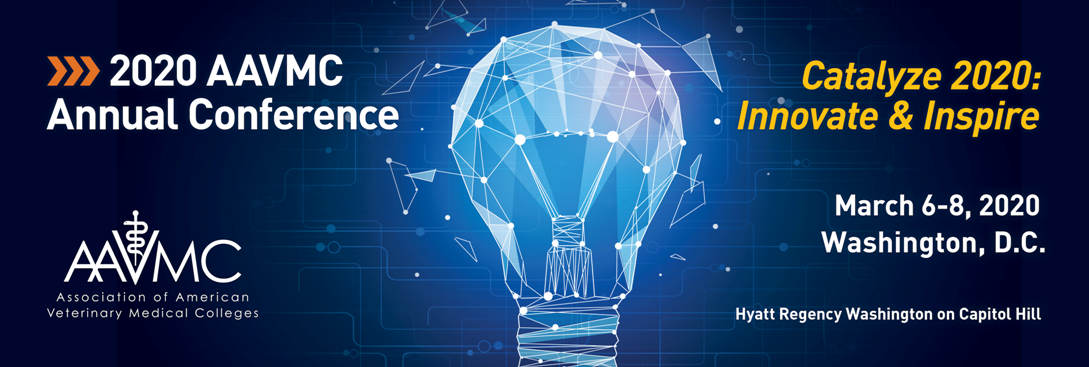
University of Bristol School of Veterinary Medicine Becomes AAVMC’s 53rd Member
 The University of Bristol Veterinary School has become the 53rd member of the AAVMC, following its receipt of full accreditation from the Council on Education (COE).
The University of Bristol Veterinary School has become the 53rd member of the AAVMC, following its receipt of full accreditation from the Council on Education (COE). The school is also accredited by the Royal College of Veterinary Surgeons (RCVS), the European Association of Establishments for Veterinary Education (EAEVE), the Australasian Veterinary Boards Council (AVBC) and the South African Veterinary Council.
The University of Bristol is a major research university located in the southwest area of the United Kingdom, about 100 miles west of London. The university received its Royal Charter in 1909 and enrolls about 22,000 students.
Based at Bristol’s Langford Campus, Bristol Veterinary School includes equine and small animal hospitals, a dairy farm, diagnostic laboratories, and farm animal, small animal and equine practices.
Conference Diversity and Inclusion Program Developed
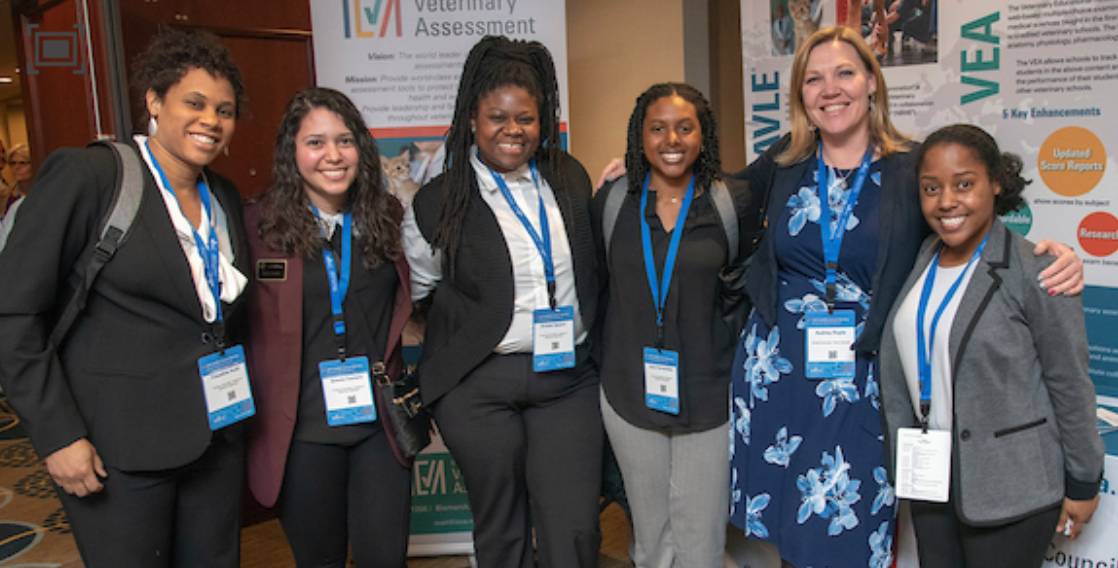
The AAVMC strives to advance its core value of promoting diversity & inclusion through virtually every program. But those efforts are sometimes thwarted when it comes to presenting or sponsoring conferences in the 28 states that do not currently have anti-discrimination laws. Previously, AAVMC policy has been to restrict such activity to states with laws that guaranty equal rights and dignity.
Yet declining to present an AAVMC sponsored or affiliated event in such a state can unintentionally exert a marginalizing effect on AAVMC member institutions who wish to fully engage with AAVMC programs and conferences.
To address that problem, AAVMC Senior Director for Institutional Research and Diversity Dr. Lisa Greenhill developed a Conference Diversity and Inclusion Protocol that can be used to assess the suitability of a venue on the basis of established criteria for all meetings. The AAVMC Board of Directors approved the proposal during a recent meeting.
“We’re essentially recalibrating our approach to how we can best promote our values and protect our stakeholders through our meeting and conference programming,” said Greenhill. “Instead of a restrictive program that situationally eliminates a venue on the basis of shortcomings in state law, we have identified an inventory of characteristics that must be present to ensure equality and fairness for all of our meetings and conferences.”
A comprehensive checklist that spells out standards for diversity and inclusion that must be met during all phases of the special event planning and presentation process has been developed for all AAVMC conferences, according to Greenhill.
For example, meeting times must avoid various religious and national holidays. Inclusive language and images must be used in promotional materials, and diversity and inclusion principles must be considered by the program committee throughout the planning, presentation, and review process. Also, arrangements must be made to ensure accessibility for all guests, and all other appropriate accommodations for various disabilities, special diets, and other needs must be addressed.
For more information, contact Dr. Greenhill at 202-371-9195 (ext. 147) or lgreenhill@aavmc.org.
Stanton Foundation Supporting AAVMC, Veterinary Medicine and Human/Animal Bond
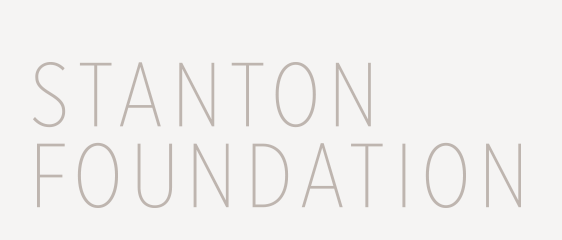 Canine welfare is one of three core areas of philanthropic interest for the Stanton Foundation, an organization established to honor the legacy
of the late broadcasting pioneer and CBS President Dr. Frank Stanton.
Over the last several years the Stanton Foundation has magnified the
impact of his extraordinary life by supporting the AAVMC, veterinary
medicine and the human/animal bond, and programs serving other vital
areas in society.
Canine welfare is one of three core areas of philanthropic interest for the Stanton Foundation, an organization established to honor the legacy
of the late broadcasting pioneer and CBS President Dr. Frank Stanton.
Over the last several years the Stanton Foundation has magnified the
impact of his extraordinary life by supporting the AAVMC, veterinary
medicine and the human/animal bond, and programs serving other vital
areas in society.
“Dr. Stanton was a remarkable and visionary man whose legacy continues
to shape the world,” said AAVMC CEO Dr. Andrew T. Maccabe. “He played an
historic role in the development of the 20th century broadcast industry
and helped lead many other major organizations. We’re honored by this
opportunity to collaborate with a foundation that is advancing the
causes and initiatives Dr. Stanton cared so deeply about.”
In addition to canine welfare, the foundation also supports initiatives
in the area of First Amendment freedoms and the need for an informed
citizenry in a democracy, and different areas of nuclear security and
risk reduction in the atomic age.
After Dr. Stanton earned a PhD from The Ohio State University focused on
methods and technologies for measuring and analyzing radio audiences in
1935, he joined CBS. There, he established a research department and
quickly rose to senior leadership, eventually serving as CBS president
for 25 years and helping build the broadcasting giant into one of the
most powerful communication companies in the world.
He also served as president of the Washington D.C. based “think-tank”
the Rand Corporation, chairman and CEO of the American Red Cross and on
the boards of organizations ranging from the Rockefeller Foundation and
the Carnegie Institution to Harvard University and Lincoln Center.
Following his death in 2006, the Stanton Foundation was formed to honor
his legacy and advance the causes and ideas that meant so much to him.
The Stanton Foundation has provided support for the AAVMC Annual Conference, the AAVMC Primary Care Veterinary Education Symposium, and veterinary medical programs at his alma mater, The Ohio State University. It also operates two major programs in veterinary medicine: the Next Generation Canine Research Fellowship Program and the Canine Care Course Development Grants. The Stanton Foundation will launch a third at the end of January, the Stanton Spectrum of Care Clinical Research Program.
The canine research fellowship program is designed for young academics
interested in conducting research that will advance primary care
practitioners’ ability to offer quality care for dogs at multiple price
points. The fellowships can range from one to two years and address an
array of topics within the category. The fellowships fund the Fellow’s
salary and benefits for a year, and can include a research budget up to
$25,000.
Canine Care Course Development Grants
include individual categories for students and practitioners.
Practitioner programs seek to fund programs that enable practitioners to
develop continuing education programs that assist others in mastering
value-based primary care diagnostic and therapeutic techniques for an
economically diverse clientele.
The Student-Focused Course Development Program
seeks to help veterinary medical students develop their primary
practice skills in a way that prepares them to provide competent high
level care to basic, low-cost interventions.
The Stanton Spectrum of Care Clinical Research Program aims to help veterinarians serve an economically diverse clientele by providing them with new, effective, evidence-based care options. Specifically, the Foundation will fund clinical research to evaluate the efficacy of protocols for diagnosis or treatment that will reduce client costs while promoting canine health. Any veterinarian, team of veterinarians in private practice or a clinical researcher at a CVM with an idea that plausibly meets the criteria will be invited to apply.
For more information click here.
Record U.S. Expansion Brings Strong Economic Climate for Profession
 The fortunes and tides of the veterinary medical profession often correlate with the ups and downs of U.S. economic cycles. The longest economic expansion in U.S. history has contributed to the solid employment and salary picture described during the recent 2019 AVMA Economic Summit.
The fortunes and tides of the veterinary medical profession often correlate with the ups and downs of U.S. economic cycles. The longest economic expansion in U.S. history has contributed to the solid employment and salary picture described during the recent 2019 AVMA Economic Summit.
The average starting salary for a new veterinarian was reported to be about $85,000 and the mean educational debt for all graduates from U.S. veterinary medical colleges and schools was about $150,000, according to an article written by Malinda Larkin in JAVMA News on a presentation made by AVMA Associate Director of Analytics Dr. Bridgette Bain at the conference. The debt to income ratio, or DIR, was reported to be 1.81:1.
The following articles concerning the conference were collected and published in the Veterinary Debt Initiative Round-Up by Kim Farina: Financial planner Isaiah Douglass summarized his key learnings from the AVMA Economic Summit in the Oct. 31 blog post “AVMA Economic Summit-Takeaways” and “The Veterinarian Success” podcast Episode 21, “Disability Insurance 101 & AVMA Economic Summit Review.”
The recently released AVMA 2019 Economic State of the Veterinary Profession Report also details solid economic conditions for the profession. The report examines markets for veterinarians, veterinary education and veterinary services, according to AVMA news authored by writer Michael San Filippo.
“Economic forces influence every facet of our economy, and veterinarians are no exception,” said AVMA Chief Economist and Veterinary Economics Division Director Matt Salois, PhD, in that article. “The key to success is understanding these forces and significant economic trends influencing the supply and demand for each of these three veterinary markets.”
Here are key findings about the current economic climate in the profession cited in that AVMA story:
- The economic state of the veterinary profession is strong, thanks to the expanding economy.
- Pet owner demand for veterinary services is strong, with household expenditures at veterinary clinics increasing by 8% from 2012-2016 to $28 billion.
- Record unemployment rates challenge practice owners looking to fill open positions.
- The supply of veterinarians continues to increase as new schools open and the number of graduates continues to increase.
- Economic resiliency: The longest U.S. economic expansion in history will inevitably peak and begin to slow, and veterinarians need to be prepared.
AAVMC Selects 2020 Faculty Fellows

The AAVMC has chosen Dr. Melissa Bain from the University of California-Davis School of Veterinary Medicine and Dr. Erica Behling-Kelly from the Cornell University College of Veterinary Medicine as 2020 Faculty Fellows.
Behling-Kelly is an associate professor in the Cornell University Department of Population Medicine and Diagnostic Sciences and serves as director of the Clinical Pathology Laboratory. The dates for her fellowship are April 13 through May 15, 2020.
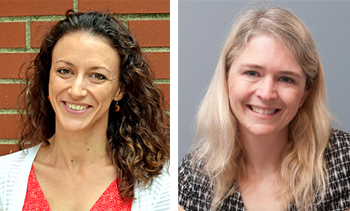
Dr. Behling-Kelly (left) and Dr. Bain.
The AAVMC launched the Faculty Fellows Program in 2015 to bring faculty representatives from member institutions to Washington D.C. to develop leadership skills in the advocacy arena, explore the implications of public policy decisions on the profession and gain overall knowledge of the legislative and regulatory process at the federal level.
The fellowship is also designed to help participants use their knowledge and experience to work as leaders in advocacy and public policy at their home institutions.
In a personal statement, Bain wrote that, “My primary goal is to learn more about governmental affairs in order to effectively communicate with those in governmental offices/services, veterinary organizations, and non-governmental organizations, on various aspects of veterinary medicine, especially related to animal welfare and behavior.”
Behling-Kelly, who also participated in the AAVMC’s Leadership Academy, wrote that, “In light of an increasing awareness, I now seek to expand my understanding of the processes and mechanics involved in enacting change.”
Fellows also work with the AAVMC’s Director of Governmental Affairs Kevin Cain to learn more about the AAVMC’s advocacy work and how the AAVMC connects with the federal government.
Under the program, a maximum of two fellows are chosen per fiscal year for fellowships that last six-to-eight weeks, depending upon AAVMC resources and advocacy issues, the issues to be studied, the congressional calendar, and the fellow(s) availability.
Each fellow remains on their employer’s payroll and receives a $10,000 stipend from the AAVMC to cover expenses, with special consideration given to nominees who have exhibited leadership skills, especially in the areas of advocacy and government.
Western Regional Iverson Bell Symposium April 17-19, 2020
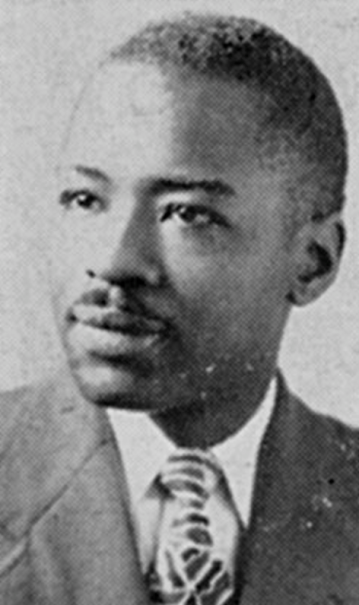 The 2020 Western Regional Iverson Bell Symposium will be held from April 17-19, 2020 at Washington State University in Pullman, Washington.
The 2020 Western Regional Iverson Bell Symposium will be held from April 17-19, 2020 at Washington State University in Pullman, Washington.
Hosted by the WSU College of Veterinary Medicine, the conference will focus on intersectionality as it relates to diversity, inclusion, and equity.
Registration is now open and is $120 for faculty/staff and $25 for students. After March 10, late registration is $220 for faculty/staff and $50 for students. Conference enrollment is limited.
For more information, contact Bethany Colaprete at bethany.colaprete@wsu.edu or Katy Heaton at cowgirlup4ever@wsu.edu.
Iverson C. Bell (1916-1984) was an advocate, leader, and activist who is honored for his strong commitment to diversity and inclusion in public education.
Bell earned his DVM degree from Michigan State University and taught small animal medicine as part of the founding faculty at the Tuskegee University School of Veterinary Medicine in Tuskegee, Alabama. He also practiced for many years in Indiana.
Bell’s leadership in the veterinary medical profession included holding several positions within the Indiana Veterinary Medical Association and service with distinction as the AVMA’s vice president from 1971-73.
The AAVMC annually celebrates his legacy through their annual conference and regional symposiums have been held around the country for the past several years.
Programs at Eight AAVMC Institutions Funded by VSGP
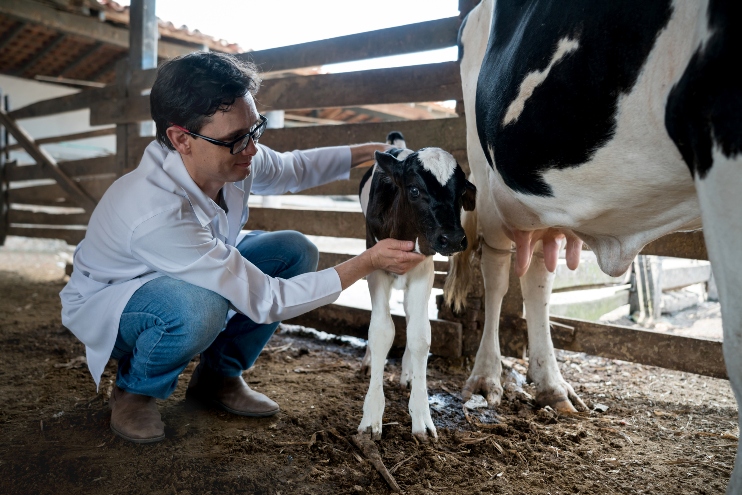 Almost $2 million in proposals from seven AAVMC member institution colleges of veterinary medicine and one affiliate were funded during the most recent distribution of Veterinary Service Grants Program (VSGP) Awards. Those include the University of Illinois, Iowa State University, Kansas State University, the University of Kentucky (affiliate), the University of Missouri, Oklahoma State University, Lincoln Memorial University and the Virginia-Maryland College of Veterinary Medicine.
Almost $2 million in proposals from seven AAVMC member institution colleges of veterinary medicine and one affiliate were funded during the most recent distribution of Veterinary Service Grants Program (VSGP) Awards. Those include the University of Illinois, Iowa State University, Kansas State University, the University of Kentucky (affiliate), the University of Missouri, Oklahoma State University, Lincoln Memorial University and the Virginia-Maryland College of Veterinary Medicine.
The National Institute of Food and Agriculture (NIFA) recently announced nine Extension and Training Grants to help mitigate veterinary service shortages in the United States.
This program is designed to support education and extension activities that enable veterinarians, veterinary students, and veterinary technicians to gain specialized skills and practices.
The Agricultural Act of 2014 authorized the establishment of the VSGP as a companion to the Veterinary Medical Loan Repayment Program to incentivize service in areas underserved by veterinarians. Ultimately, VSGP will bolster the capacity of private veterinary practitioners to provide food animal veterinary services in rural areas.
January 2020 National One Health Awareness Month
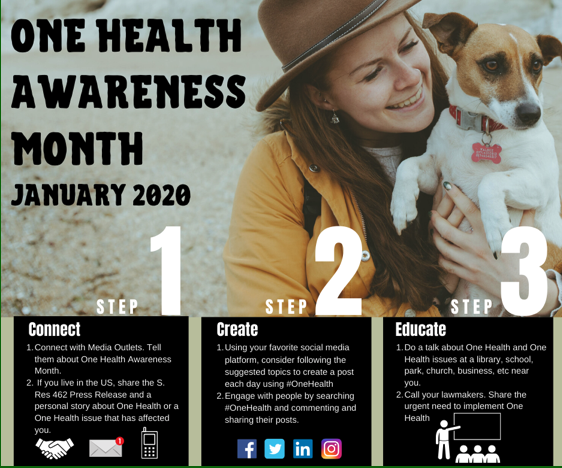 The United States Senate passed Senate Resolution 462, which designates January 2020 as National One Health Awareness Month in the United States, on December 19, 2019.
The United States Senate passed Senate Resolution 462, which designates January 2020 as National One Health Awareness Month in the United States, on December 19, 2019.
This major achievement in the years-long effort to build public awareness and support for the One Health concept is the result of a sustained and concerted effort by the One Health Commission and many other collaborating organizations.
Introduced by Senators Diane Feinstein (D-California) and Martha McSally (R-Arizona), the bill passed unanimously and supports a national public awareness campaign concerning the need for physicians, veterinarians and environmental scientists to take a collaborative approach to fighting disease and promoting health.
One Health approaches are being embraced by the World Health Organization, the Centers for Disease Control in Atlanta and many other organizations.
“By using the ‘One Health’ approach, global health problems including antibiotic resistance and the spread of infectious diseases can be more easily addressed,” Senator Feinstein said. “Our resolution will hopefully draw attention to the need for holistic approaches to addressing human health that take into account changes in environmental and animal health. With diminishing resources and a growing human population, fighting problems with a ‘One Health’ approach must be encouraged now more than ever.”
“The health of our population is dependent on the interconnection of people, animals, and the environment,” said Senator McSally. “I was glad to join Senator Feinstein in introducing this resolution designating January as National One Health Awareness Month to promote ‘One Health’ and its growing collaboration in order to make our world a healthier place.”
The One Health Commission and One Health in Action, Louisiana have quickly mobilized to launch a month long communications effort designed to build awareness at the grassroots level. Please click here to access a comprehensive One Health Awareness guide that can assist your organization in helping spread the word.
Bills introduced in the U.S. Senate and House directing federal departments and agencies to establish an interagency One Health framework are still pending in each chamber of Congress. These companion bills push a coordinated “One Health” approach to better prevent, prepare for, and respond to zoonotic disease outbreaks.
Read Senate Bill S.1903
Read House Bill H.R. 3771
Nomination Period Opens for AAVMC Communications, Fundraising Awards
Nominations are now being accepted for two AAVMC Awards that recognize excellence in institutional advancement among AAVMC members. The AAVMC’s Communications Excellence Award, first presented in 2013, recognizes the important role communication plays in advancing academic veterinary medicine. The AAVMC Excellence in Scholarship Fundraising Award, which was presented for the first time in 2019, is designed to inspire and recognize professional excellence and achievement in fundraising for DVM student scholarships. Each award includes a $1,000 honorarium and professional recognition.
Nominations for Interprofessional Education Collaboration Award Close Feb. 3
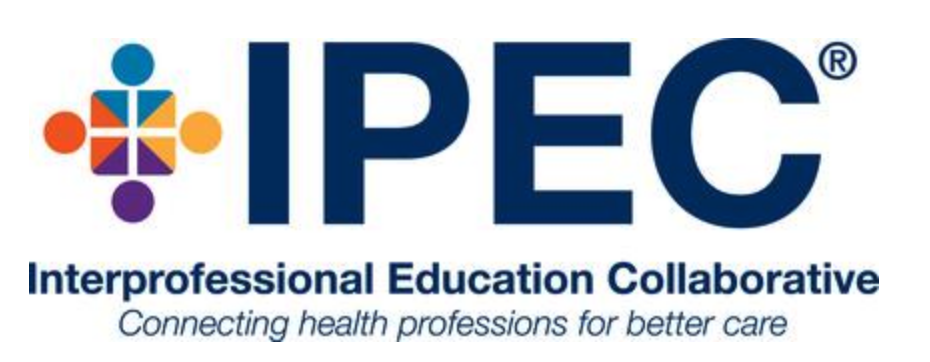 Applications for the 2020 Public Health Excellence in Interprofessional Education Collaboration Award are now open and must be received by February 3, 2020. Sponsored by the United States Public Health Service Department (USPHS) and the Interprofessional Education Collaborative (IPEC), the awards competition seeks to recognize and showcase how interprofessional collaboration in the health professions positively impacts community health.
Applications for the 2020 Public Health Excellence in Interprofessional Education Collaboration Award are now open and must be received by February 3, 2020. Sponsored by the United States Public Health Service Department (USPHS) and the Interprofessional Education Collaborative (IPEC), the awards competition seeks to recognize and showcase how interprofessional collaboration in the health professions positively impacts community health.
The national honoree will be recognized during the Summer 2020 IPEC Meeting in Washington, D.C. The winning team will receive a $2,000 stipend to offset travel costs. Additionally, a webinar series or continuing education publication will be developed from the selected project/topic areas. Honorable mention winners will also be invited to the Summer 2020 IPEC Meeting to receive their certificates and present posters on their projects.
All awardees will be featured on the IPEC website, promoted across partner sites, highlighted through social media campaigns, and acknowledged throughout member communications.
All applicants will receive notification emails by Friday, March 13, 2020. Application instructions, submission requirements, frequently asked questions, and general tips can be found on the USPHS IPEC Award website.
To see a list of previous winners, click here. To access the on-line application site, please click here.
Established in 2009 to advance interprofessional learning experiences and promote team-based care, IPEC now includes 21 different associations of schools in the health professions, including the AAVMC.
For more information, please contact IPEC Associate Director Shelley McKearney at smckearney@aacnnursing.org or 202-463-6930 ext. 269.
Veterinary Debt Initiative (VDI) Round-Up
 Educational debt in the United States is estimated at $1.6 trillion and looms as a significant economic threat for society at large, not just a generation of students. It’s a big problem in academic veterinary medicine as well, but a group of dedicated volunteers are working hard to help. Members of the Veterinary Debt Initiative, comprised of the AVMA, the AAVMC and the Veterinary Medical Association Executives (VMAE), have been meeting regularly for about two years. Their goal: to help veterinarians thrive in financially sustainable and rewarding careers. Click here to read the newest collection of stories in their periodic roundup.
Educational debt in the United States is estimated at $1.6 trillion and looms as a significant economic threat for society at large, not just a generation of students. It’s a big problem in academic veterinary medicine as well, but a group of dedicated volunteers are working hard to help. Members of the Veterinary Debt Initiative, comprised of the AVMA, the AAVMC and the Veterinary Medical Association Executives (VMAE), have been meeting regularly for about two years. Their goal: to help veterinarians thrive in financially sustainable and rewarding careers. Click here to read the newest collection of stories in their periodic roundup.
In The News
AAVMC, Merck Division Unite on AMR ProjectVeterinary Practice News/WATTAgNet/Animal Pharm/Feedstuffs
Good News for Dogs with Cancer
Scientific American
An Offshoot of Meals on Wheels, Ani-Meals on Wheels Helps Feed the Pets of Disadvantaged Older Adults
Star Tribune
University of Guelph Program Sends Pop-Up Vet Clinics in Indigenous Communities
Toronto Star
Higher Ed Board Paves Way for Texas Tech to Open Veterinary School in Amarillo
Abilene Reporter News
BC’s Veterinarians: Serious Shortage, but Government Refuses to Help
The Indo-Canadian Voice
AAVMC Chooses Top Educators of the Year
Today’s Veterinary Business
Virginia-Maryland Chooses Auburn Executive as Dean
Today’s Veterinary Business
High-Priority Animal Disease Research Funded
Feedstuffs
FIP Treatment in the Works
Veterinary Practice News
What Medical Students Can Learn About Health from Animals
AAMC News
A New Role for Triple-Negative Breast Cancer Target
USAgnet
Toolkit to Help Veterinary Colleges Deal with Suicide
JAVMA News
RUSVM: Prepping a New Generation of Veterinarians
Veterinary Practice News
Gene-Directed Therapy may Benefit Dogs with Lung Cancer
Healio
Tuskegee University’s President Takes Medical Leave of Absence
WSFA-12
From Our Members
Wellness Initiatives at Veterinary College Care for Students, Clients, and PractitionersVirginia-Maryland
Kansas State University Researcher Receives $1.6 Million NIH Grant to Uncover Mysteries Behind Parkinson’s Disease
Kansas State
Zika Vaccine Protects Fetus in Pregnant Monkeys
UC Davis
Reconstructing Murphy
Ontario Vet College
New Research Reveals Connection Between Drug Treatments and Antimicrobial Resistance in Cattle Disease
Kansas State
People in Motion
Dr. Dana Zimmel, associate dean for clinical services at the University of Florida College of Veterinary Medicine, has been named interim dean.Dr. Robert Mealey is serving as interim dean at the Washington State College of Veterinary Medicine.
“Like” us on Facebook or follow us on Twitter:




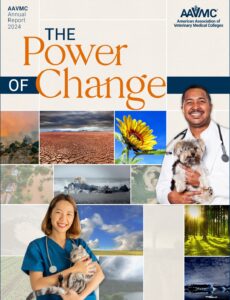
SHARE